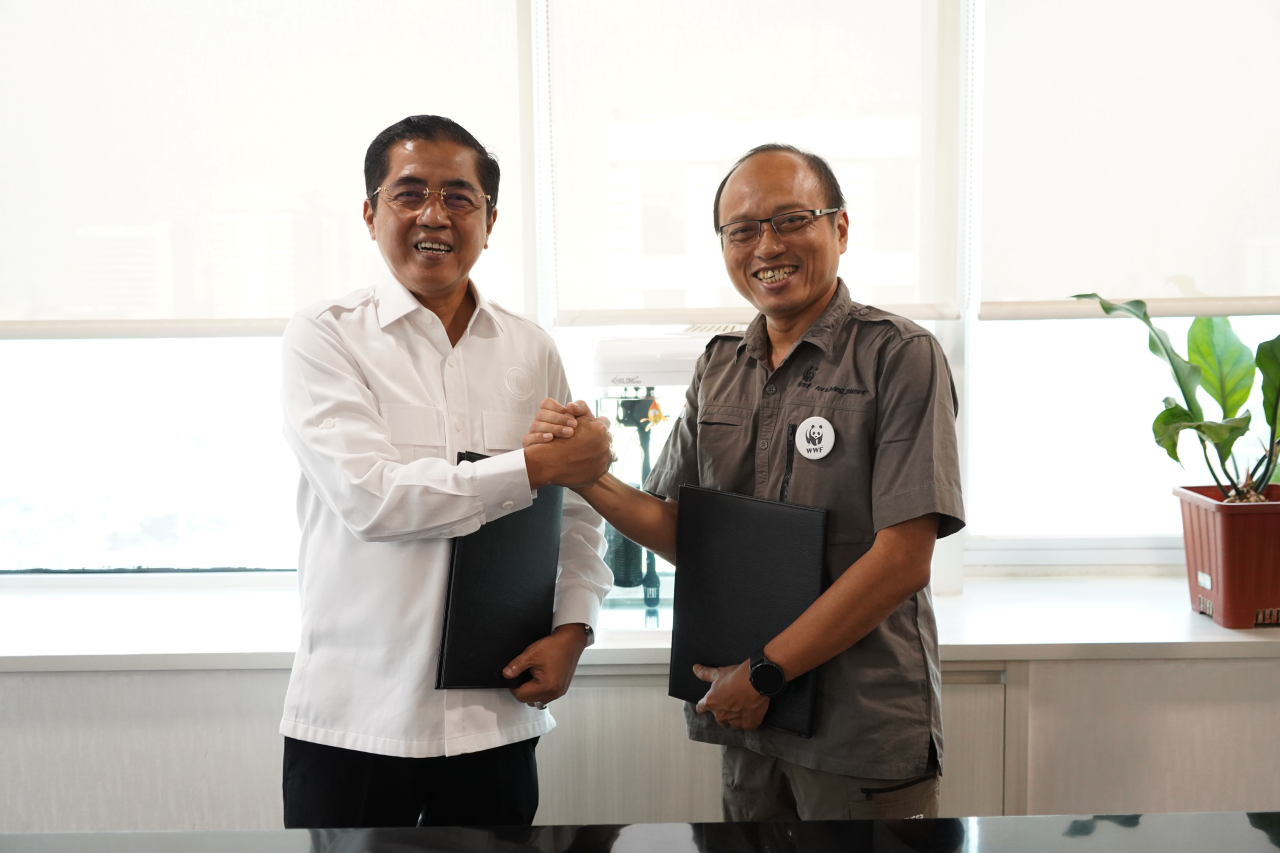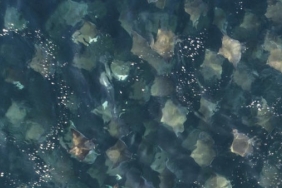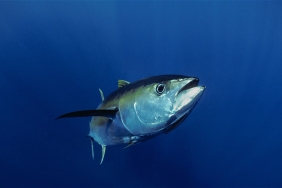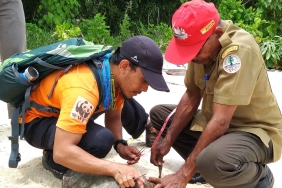STRATEGIC COOPERATION BETWEEN THE MINISTRY OF MARITIME AFFAIRS AND FISHERIES (KKP) AND WWF-INDONESIA TO STRENGTHEN THE COMPETITIVENESS OF SUSTAINABLE MARINE AND FISHERY PRODUCTS TO REALIZE GLOBAL FOOD SECURITY
Jakarta, March 6, 2025 - The Directorate General of Strengthening the Competitiveness of Marine and Fishery Products (PDSPKP) of the Ministry of Maritime Affairs and Fisheries (KKP) of the Republic of Indonesia signed a Cooperation Agreement (PKS) with the WWF Indonesia Foundation at the Ministry of KKP office. This cooperation agreement aims to strengthen the competitiveness of Indonesian marine and fishery products and address the challenges of global food security.
This cooperation supports a sustainable blue food system, in line with Indonesia's commitment to the UN Ocean Conference and the Sustainable Development Goals (SDGs), particularly SDG 2 (Food Security) and SDG 14 (Marine Conservation). The cooperation agreement was signed by the Director General of PDSPKP, Budi Sulistiyo, and Dewi Lestari Yani Rizki from WWF-Indonesia.
Director General of PDSPKP, Budi Sulistiyo, emphasized that this partnership is a strategic step to ensure that Indonesia's fisheries sector remains competitive and sustainable. Indonesia has great potential in the fisheries industry. With this cooperation, we want to ensure that this sector not only sustains the national economy but also provides real benefits for small-scale fishers, MSMEs, as well as marine ecosystems," he said.
This aquatic food system is important because Indonesia, as an archipelagic country, has a capture fisheries potential of 12.01 million tons per year (KKP, 2024), so it can actively contribute to ensuring seafood sustainability for global food needs. This aquatic food system will support more than 3 billion people worldwide who depend on seafood as their main source of protein (FAO, 2023). To meet these needs, this collaboration focuses on strengthening market access and ensuring compliance with standards for sustainable fisheries products, including global regulations such as the Marine Mammal Protection Act (MMPA), which is required for exports to the United States.
Indonesia is one of the leading exporters of fishery products, with export value reaching USD 6.24 billion in 2023 (MMAF, 2024). In addition to regulatory compliance, this cooperation focuses on strengthening the fish and seaweed processing sector, ensuring products can be traced to their origin and meet sustainability principles. Assistance will be provided to fish and seaweed processing units to obtain global certifications such as the Marine Stewardship Council (MSC) and Aquaculture Stewardship Council (ASC). In addition, this cooperation will help overcome barriers to exports of captured shrimp from Indonesia to the United States and improve the competitiveness of seaweed products. Indonesia is the second largest seaweed producer in the world after China (FAO, 2023).
The GPA also aims to strengthen the entrepreneurship and economic resilience of fishermen and small-scale fish farmers through sustainable livelihood programs. WWF-Indonesia and KKP will encourage the development of small-scale fisheries entrepreneurship and expand market access for community-based products. In addition to production and trade aspects, this collaboration emphasizes the importance of public awareness in encouraging responsible fisheries practices. Educational campaigns will be intensified to increase public understanding of the consumption of certified and sustainable fishery products.
Dewi Lestari Yani Rizki, Conservation Director WWF-Indonesia, "It is important to work in multi-stakeholder collaboration with government, communities, and industry to ensure a sustainable aquatic food system". Dewi continued, "WWF-Indonesia is committed to ensuring that sustainable fisheries practices are implemented. By maintaining a balance between resource utilization and conservation, we can ensure the food security and welfare of coastal communities in the future," she said.
The GPA is valid for the period 2025-2029, with annual evaluations to ensure the effectiveness of implementation and opportunities for extension of cooperation. Through this partnership, Indonesia is expected to strengthen its position as a leader in sustainable fisheries at the global level, while ensuring that Indonesia's seafood is not only of high quality and competitive, but also supports the welfare of coastal communities as well as the health of marine ecosystems.
WWF-Indonesia has played a role in the transformation of Indonesia's fisheries sector, as evidenced by the 57,908 tons of environmentally friendly seafood produced during 2019-2024. This role includes assistance for farmed shrimp, which resulted in 62% of its 2,644 tons of production having obtained ASC ecolabel certification. In the field of conservation, WWF-Indonesia also contributed to the preparation of the National Action Plan (NAP) for Marine Mammal Conservation as well as bycatch monitoring in various fisheries areas of Indonesia. As a result of monitoring, in 2022-2024, there were 186 dolphins caught accidentally in the Bali Strait, out of 2,528 fishing trips using purse seine and gill nets. To reduce bycatch on these marine mammals, WWF-Indonesia developed innovative technologies such as acrylic balls as acoustic reflectors and LED lights on gill nets.
**
For further information, please contact:
- Indah, Public Relations Directorate of PDSPKP-KKP | 0811-172-434
- Karina Lestiarsi, Communication Office WWF-Indonesia | klestiarsi@wwf.id / 0852-1816-1683





